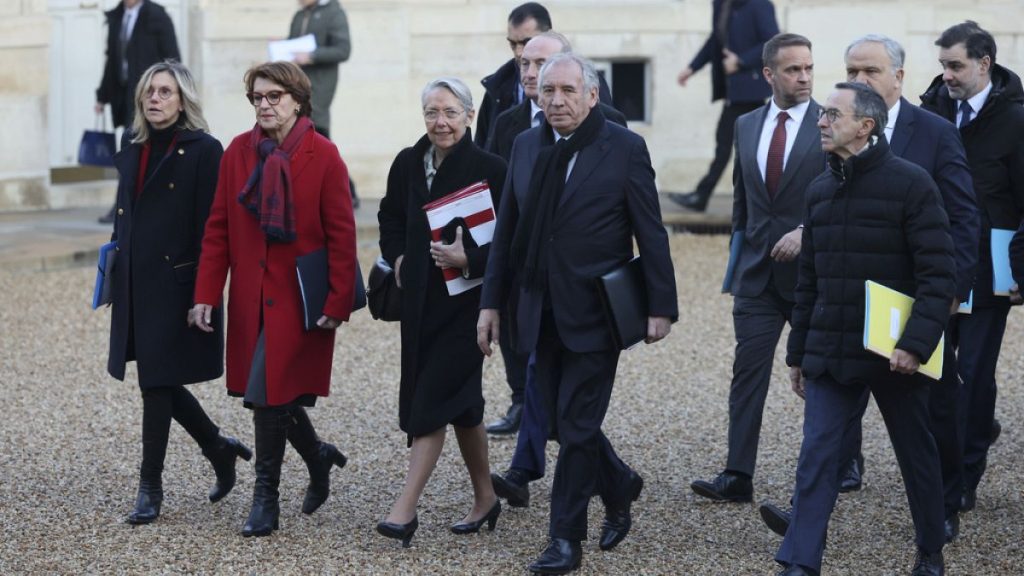The political landscape in France underwent a significant shift in late 2024, culminating in the appointment of François Bayrou as Prime Minister on December 13th. This followed a period of intense political turmoil, marked by a successful censure motion against the previous government led by Michel Barnier, the breakdown of parliamentary majorities, and the increasing influence of extremist political factions. President Emmanuel Macron, in his address to the newly formed Council of Ministers, emphasized the need for both boldness and stability in navigating this challenging political climate. The new government’s immediate priorities were clearly defined: the passage of the 2025 budget and the reduction of the public deficit, two intertwined challenges with significant implications for France’s economic standing both domestically and within the European Union.
The urgency of these fiscal priorities was underscored by the context of the political crisis and the scrutiny of international financial institutions. Rating agencies, financial markets, and the European Commission were all closely monitoring France’s fiscal trajectory, emphasizing the importance of adhering to the budgetary discipline imposed by the EU’s Stability and Growth Pact. This pact sets critical benchmarks for member states, limiting public debt to 60% of GDP and the public deficit to 3% of GDP. France, with a 2024 deficit of 6.1% of GDP, faced the pressing need to bring its finances in line with these requirements. The government, under Bayrou’s leadership, set a target of reducing the deficit to 5.4% of GDP in 2025, a slightly less ambitious objective than the 5% target previously set by the Barnier government.
The task before Bayrou’s government was multifaceted, demanding a delicate balance between addressing pressing economic concerns and navigating the complexities of a fragmented political landscape. Government spokeswoman Sophie Primas, in a press conference following the first Council of Ministers meeting, called for a spirit of collective responsibility and a willingness to move beyond rigid political stances. This appeal reflected the need for cooperation and compromise to overcome the political divisions that had led to the downfall of the previous government. The success of the new government hinged not only on its ability to manage the economic challenges, but also on its capacity to foster a more constructive political environment.
Beyond the immediate fiscal priorities, the Bayrou government also faced the urgent need to address the devastating aftermath of Cyclone Chido in Mayotte. The cyclone had left the island in dire straits, and the government was under pressure to deliver on the promises of aid and reconstruction made by Bayrou earlier in the week. This added another layer of complexity to the government’s agenda, requiring a swift and effective response to the humanitarian crisis while simultaneously tackling the broader economic and political challenges facing the nation. The ability of the government to effectively manage this multifaceted crisis would serve as a crucial test of its leadership and its capacity to deliver on its promises to the French people.
The formation of the Bayrou government on December 23rd, 2024, marked a turning point in French politics. Following a period of instability and political upheaval, the new government faced a daunting set of challenges, requiring both decisive action and a commitment to fostering greater political stability. The focus on budgetary discipline and adherence to EU fiscal rules signaled a commitment to responsible economic management, while the response to the crisis in Mayotte demonstrated the government’s responsiveness to the immediate needs of its citizens. The success of the Bayrou government ultimately depended on its ability to navigate these complex and interconnected challenges, balancing economic pragmatism with political acumen.
The first steps of the Bayrou government were marked by a sense of urgency and a clear recognition of the challenges ahead. The emphasis on budgetary consolidation, the appeal for political cooperation, and the commitment to addressing the crisis in Mayotte all underscored the government’s determination to address the pressing concerns facing the nation. However, the true measure of the government’s success would lie not only in its ability to manage these immediate crises, but also in its capacity to foster a more stable and constructive political environment, one capable of addressing the deeper structural challenges facing France. The coming months and years would prove crucial in determining whether the Bayrou government could deliver on its promises of stability and reform, ultimately shaping the future trajectory of French politics and its standing within the European community.










